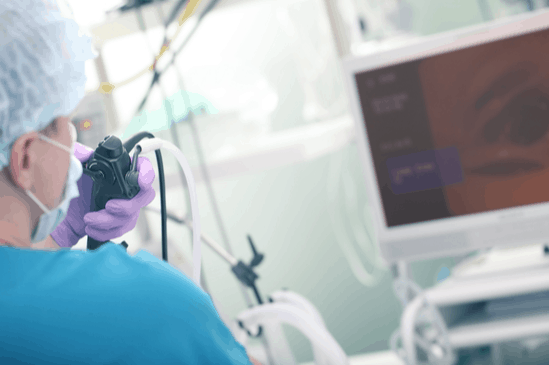Your doctor might apply a local anesthetic to your throat and/or give you a sedative to make you more comfortable. Your doctor might even ask an anesthesiologist to administer sedation if your procedure is complex or lengthy. Some patients also receive antibiotics before the procedure. You will lie on your abdomen on an X-ray table. The instrument does not interfere with breathing, but you might feel a bloating sensation because of the air introduced through the instrument.
ERCP is a well-tolerated procedure when performed by doctors who are specially trained and experienced in the technique. Although complications requiring hospitalization can occur, they are uncommon. Complications can include pancreatitis (inflammation of the pancreas), infections, bowel perforation and bleeding. Some patients can have an adverse reaction to the sedative used. Sometimes the procedure cannot be completed for technical reasons. Risks vary, depending on why the test is performed, what is found during the procedure, what therapeutic intervention is undertaken and whether a patient has major medical problems. Patients undergoing therapeutic ERCP, such as for stone removal, face a higher risk of complications than patients undergoing diagnostic ERCP. Your doctor will discuss your likelihood of complications with you before you undergo the test.
If you have ERCP as an outpatient, you will be observed for complications until most of the effects of the medications have worn off before being sent home. You might experience bloating or pass gas because of the air introduced during the examination. You can resume your usual diet unless you are instructed otherwise. Someone must accompany you home from the procedure because of the sedatives used during the examination. Even if you feel alert after the procedure, the sedatives can affect your judgment and reflexes for the rest of the day.








